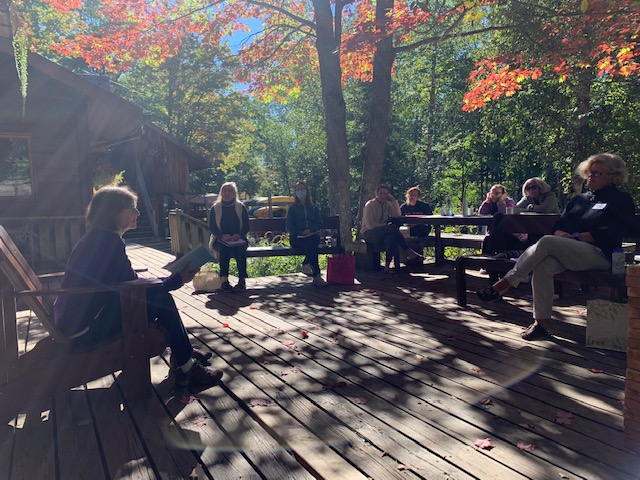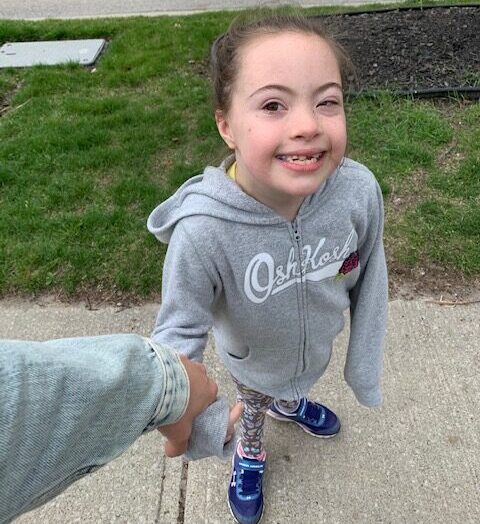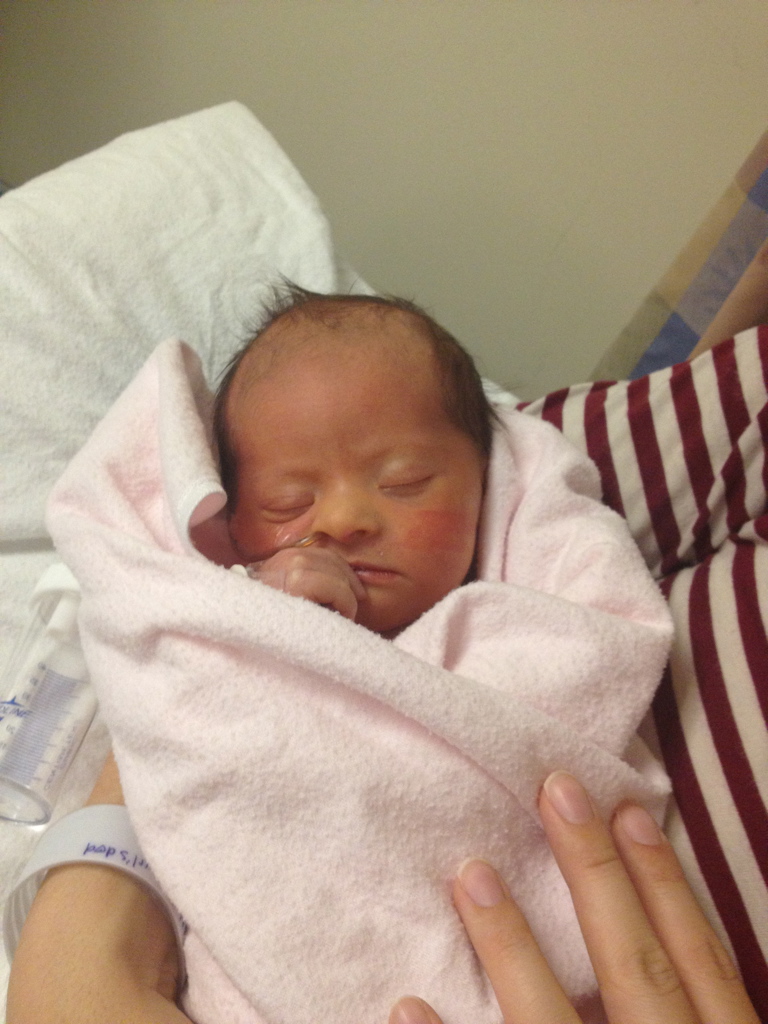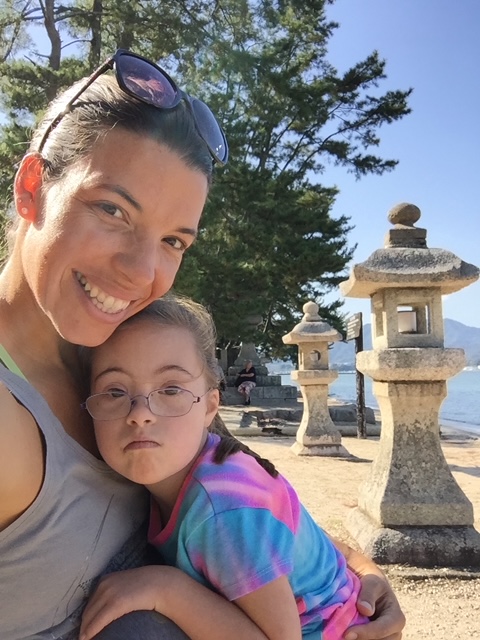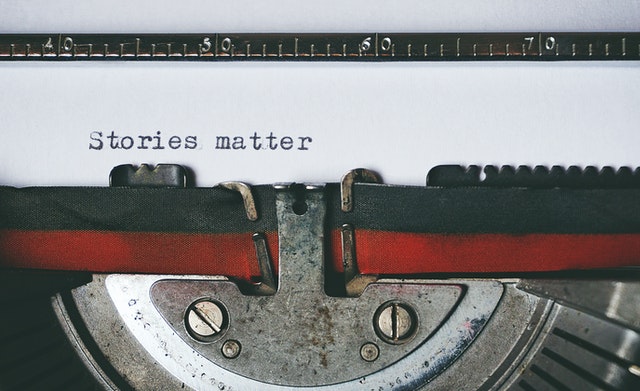On Writing Retreats.
The first time I organized a writer’s retreat I did it because, as a mother to three young kids, I wanted the time and space to write. A word to the wise: if you want time and space to write, don’t organize a writing retreat and facilitate it yourself. Renting a space meant I had to do all the grunt work. I was preparing lunches and bringing in yoga instructors and providing feedback on writers’ work. With a clump of memoir writers, I was faced with participants in tears and traumas that risked repeating themselves, skipping from body to body like a virus to a host. How to manage it all, in my new-found role of hostess, chef, therapist, teacher? While still making space for my own emotions? In truth, I didn’t, I could not. I resigned myself to giving the time and space to other women to write, and when I did that I encountered a truth perhaps greater than the value of that writing time I was giving up. Hosting the retreat was a time for me to teach, and to help other women find their story, their voice, and share it with the world. There are times to write and there are times to learn. Teaching is the highest form of learning. Despite being relatively good at math, I’m reminded of this every time I try to give my ten-year-old daughter a math lesson. And it’s not that I necessarily learn directly from the writing of the writers I’m working with, though often I do, but I learn from their bravery; I learn from their curiosity and courage. I learn from their open hearts. And in return, I offer them mine.
Running a writer’s retreat has allowed me to listen deeply to the work of other women writers. And why is this significant? Why do we have to make space to hear the voice of women writers, specifically? Aren’t men and women writers treated equally now? Women writers continue to work within the context of some invisible and some not so invisible forces working against them.
Some not so invisible forces: Recently, the finalists for a Canada-wide Creative Nonfiction contest were announced and the five finalists happened to be pieces written by women. On the contest’s Facebook group for writers across Canada, an individual felt compelled to comment: “Five finalists are women, really? Have we gone too far?” Have we gone too far. The response from the other writers in the group was outrage, incredulity. Too far? The pieces were judged anonymously, irrespective of sex or gender, dependent entirely on the merit of the writing. One of the finalists identified as a trans male anyway, had the commenter cared to be inclusive. Too far? No, we haven’t gone far enough. Would it surprise you if I said the individual who made the comment was a woman? I’m reminded of a former neighbour who read an article I’d written in the newspaper, my very first. “Did your husband help you with that?” she wanted to know. When I insisted that he hadn’t, she looked at me, surprised, “You wrote that all by yourself? Are you sure?” Are you sure? Yes, I’m sure women’s voices deserve a place to be heard, a place where we can be listened to, a place where we can be believed. Yes, I’m sure, we haven’t gone far enough.
Invisible forces. Invisible forces can look like emotional trauma. Mothers are often the work horses expected to carry the weight of emotional labour in the family, of children and spouses, with little space left over for themselves to think and feel. Women need safe spaces to express those feelings, but we also need spaces where we can work, unencumbered by expectation or any other form of labour, besides creativity. Women, all women, deserve access to their creativity.
Invisible forces can look like sexism, racism, ableism, ageism, classism, and heterosexism (homophobia). These forces are invisible in that you can’t pinpoint their origin in physical form, but the effects and outcomes are real. A clear example for understanding the invisible effects of racism against black women recently came to me by way of Audre Lorde’s 1970s book Sister Outsider. She wrote, “I can’t tell you how many good white psychwomen have said to me, “Why should it matter if I am Black or White?” who would never think of saying, “Why does it matter if I am female or male?”” This struck the chord of truth. While I acknowledge my privilege as a white woman, I have experienced the sensation of being lesser than in comparison to a man based solely on the factor of our sex. It’s in the way, in a writer’s group, when a man enters the circle of discussion among a group of women, his voice holds the most importance, his voice is believed and held as the highest truth, his is the voice of authority. This isn’t to say men are always handed the easy ticket in, but more so to say that women among men pay a higher price to enter. As Lorde so beautifully illustrated, it isn’t enough to say we are equal, there needs to be a bigger cultural shift away from preconceived values of worth and who holds knowledge and who has a right to hold that knowledge. Can we, as a culture, listen deeply to the voices of women, our gatekeepers of emotion? Can we push back against ideas that women need permission to write and be heard and that what they have to say is somehow lesser than?
After facilitating my latest retreat, feelings of wellbeing and gratitude washed over me. I spent the weekend as one of fifteen women sharing stories, with catered food and a team of other professionals to share the load of running the weekend. I’ve learned a few things about how to run a retreat as the years have gone by and I continue to learn. As I drove home alone along the open stretch of road, rows of pines waving at me as I passed by, I knew I had experienced something with these writers so seldom granted to women, and especially mothers: freedom.
Tips for organizing your own writer’s retreat:
- Know your why. I thought I was getting into organizing writing retreats because I love to write, but it turns out I also love to teach and facilitating The Write Retreat has been a perfect marriage of these skills. I find empowering and supporting women writers deeply gratifying.
- Know your audience. I’ve heard of a doctor who runs writing retreats for other doctors. Find your niche by considering what specifically you have to offer. With a background in creative nonfiction writing, I attend to attract more memoir/ personal narrative time writers to my retreats.
- Create a sustainable business model. Consider partnering with other writers and other businesses that can add value to the service you are providing. For example, working with a venue that can provide administrative services for you saves time and energy that can then be put back into the retreat while inviting guests speakers brings in expertise to support the work you are doing.
- Put your heart into it. Your participants are counting on you to deliver quality programming. Are you able to meet as many of the group’s needs as possible? Consider setting up Zoom meetings beforehand to get to know participants and find out what those needs are. Send out a questionnaire afterwards and reassess how each session went and learn what you can do better for next time. Don’t be afraid to let your passion shine through.
- Create a safe space. As writers, we know how vulnerable it can feel to share our work, especially work that’s newly formed. Create parameters around how work is shared and how feedback is provided. Focus on what works in the piece and celebrate loudly.
Tips when deciding if a writing retreat is right for you:
- What do you hope to get out of it? Are you seeking comradery and community or solace and space? Do you want intensive feedback, one-on-one time, or time to play on the page? Each writing retreat is going to offer a balance of these things—a coming together and time apart. Feedback and inspiration. Find the retreat that offers the balance that’s right for you.
- Does it add value for you? Is there a guest author you want to meet or a writer you really want to workshop with? Is the location ideal? Is the timing right given the stage of your project, or during the period when you want to get a new project going? Is it the chance to relax and inspiration that you need? The retreat needs to bring value to you and your work.
- Does it feel right? Often, we know in our gut if something is right for us or not. Read the fine print. Does the idea of sharing a room with a stranger put you off? Are your food requirements able to be met? Is the retreat space accessible for your mobility needs? Are you attracted to what’s on offer? If not, wait for the next one.
- Are your friends interested? While attending a retreat on our own is a wonderful opportunity to meet new people and make connections with other writers, there’s a level of comfort that comes with bringing a friend along. Also, reading past participants’ testimonials can be a great indicator of what you may be in for.
- When in doubt, reach out. My expectations is that if a business wants my patronage, they should be willing to answer any questions I may have. If you’re at all unsure, reach out with any questions and an organized facilitator will be happy to answer them.

